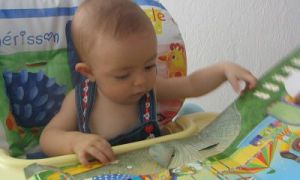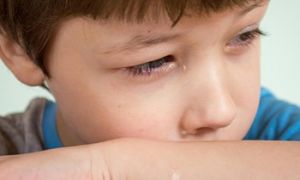

A: Employers must give at least 7 days’ notice for changes to rosters, including meeting times. If the meeting is compulsory, it must be paid.
In many early childhood settings, art activities have unintentionally become routine tasks—structured, time-bound, and educator-led. Children are often called one by one to complete pre-set crafts, given step-by-step instructions, and quickly ushered away. This approach can lead to disengagement, low interest, and a missed opportunity to nurture creativity and emotional development.
Here’s a comprehensive Mobile Phone and Smart Watch Policy tailored for early childhood education and care (ECEC) services in Australia, aligned with the latest 2025 legislative reforms and National Quality Framework (NQF) updates.
As services prepare for upcoming assessment and rating, educators and leaders often seek clarity on what assessors typically observe, review, and discuss during visits. This article outlines common areas of focus, documentation requirements, and practical considerations to support services in demonstrating quality practice and compliance.
Early childhood education thrives on diversity. Multicultural teams bring rich perspectives, lived experiences, and linguistic variety that enhance learning environments for children and educators alike.
In this article, we explore how services can support respectful language use, address feelings of exclusion, and uphold the principles of the Early Years Learning Framework (EYLF) and National Quality Standard (NQS)—without compromising identity or connection.
Creating a purposeful outdoor space means more than scattering toys—it’s about crafting an environment that actively supports children’s growth. By weaving the Early Years Learning Framework (EYLF) and the National Quality Standard (NQS) into your outdoor design, you ensure every element invites meaningful exploration, skill-building, and well-being.
Children asserting “boys only” or “girls only” play zones can create unfair barriers and hurt feelings. As educators, guiding young learners toward inclusive play builds empathy, respects diversity, and lays the foundation for equitable relationships.
When a service operates without external cleaning staff, it’s reasonable to expect educators to maintain day-to-day hygiene. However, there’s a clear boundary between routine surface-level cleaning that supports children’s health and deep-cleaning or maintenance tasks that should be outsourced or allocated separately.
Educators and families deserve a system that mirrors real-time quality and safety—one that responds instantly to compliance breaches or serious incidents rather than waiting years for the next review. Here’s a blueprint for transforming our current “tick-and-forget” model into a living, breathing accountability framework.
Ensuring families feel informed and engaged is more than a compliance checkbox—it’s the foundation of true collaboration that supports each child’s learning journey. National Quality Standard (NQS) Element 1.3.3 requires services to keep families up-to-date about the educational program and their child’s progress. Simply saying “they had a great day” plus an end-of-year report falls short of this intent. Here’s how to enrich daily communication, meet compliance expectations, and foster home-to-service learning continuity.
 Toddlers have a greater understanding of the world around them by this stage. Their cognitive development (also known as intellectual development and thinking skills) continues… Read More
Toddlers have a greater understanding of the world around them by this stage. Their cognitive development (also known as intellectual development and thinking skills) continues… Read More
 Infants begin to develop trust when parents begin to fulfil their needs. Such as changing an infant's nappy when needed, feeding on request and holding… Read More
Infants begin to develop trust when parents begin to fulfil their needs. Such as changing an infant's nappy when needed, feeding on request and holding… Read More
 Beginning at birth the construction of thought processes, such as memory, problem solving, exploration of objects etc, is an important part of an infant’s cognitive… Read More
Beginning at birth the construction of thought processes, such as memory, problem solving, exploration of objects etc, is an important part of an infant’s cognitive… Read More
 Toddlers want to do more on their own and do not like it when you begin to establish limits on their behaviour. Tantrums can become… Read More
Toddlers want to do more on their own and do not like it when you begin to establish limits on their behaviour. Tantrums can become… Read More
 Your preschooler is now able to focus their attention more accurately and is less influenced by distractions. The intensity of questions increase as your child… Read More
Your preschooler is now able to focus their attention more accurately and is less influenced by distractions. The intensity of questions increase as your child… Read More
 John Dewey is often seen as the proponent of learning by doing – rather than learning by passively receiving. He believed that each child was active,… Read More
John Dewey is often seen as the proponent of learning by doing – rather than learning by passively receiving. He believed that each child was active,… Read More
 Toddler advance and gains new skills in Gross Motor Development milestones achieved throughout earlier years. Co-ordination and challenges that could not be performed before such… Read More
Toddler advance and gains new skills in Gross Motor Development milestones achieved throughout earlier years. Co-ordination and challenges that could not be performed before such… Read More
 Erik Erikson developed a psychosocial theory to understand how we each develop our identities through eight stages of psychosocial development from infancy to adulthood. The… Read More
Erik Erikson developed a psychosocial theory to understand how we each develop our identities through eight stages of psychosocial development from infancy to adulthood. The… Read More
 At this point preschoolers begin to interact effectively with others. Play becomes more innovative and organized and “boyfriend” or “girlfriend” begins to emerge. Preschoolers have… Read More
At this point preschoolers begin to interact effectively with others. Play becomes more innovative and organized and “boyfriend” or “girlfriend” begins to emerge. Preschoolers have… Read More
 From now, babies begin to identify and respond to their own feelings, understanding other's feelings & needs and interact positively with others. A baby's social and… Read More
From now, babies begin to identify and respond to their own feelings, understanding other's feelings & needs and interact positively with others. A baby's social and… Read More

Erik Erikson developed a psychosocial theory to understand how we each develop our identities through...
See more...
Babies use of language at this stage changes so much that it's hard to notice...
See more...
Violence from a child in an early childhood setting can be confronting, destabilising, and emotionally...
See more...© 2009-2025 Aussie Childcare Network Pty Ltd. All Rights Reserved.

